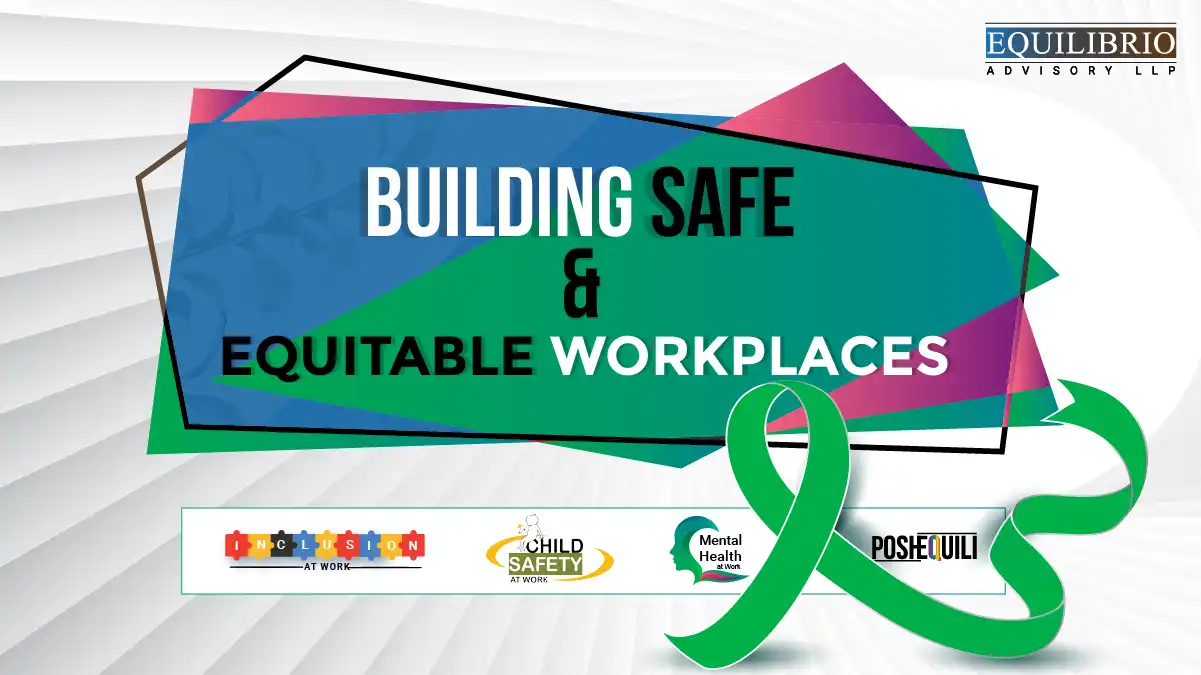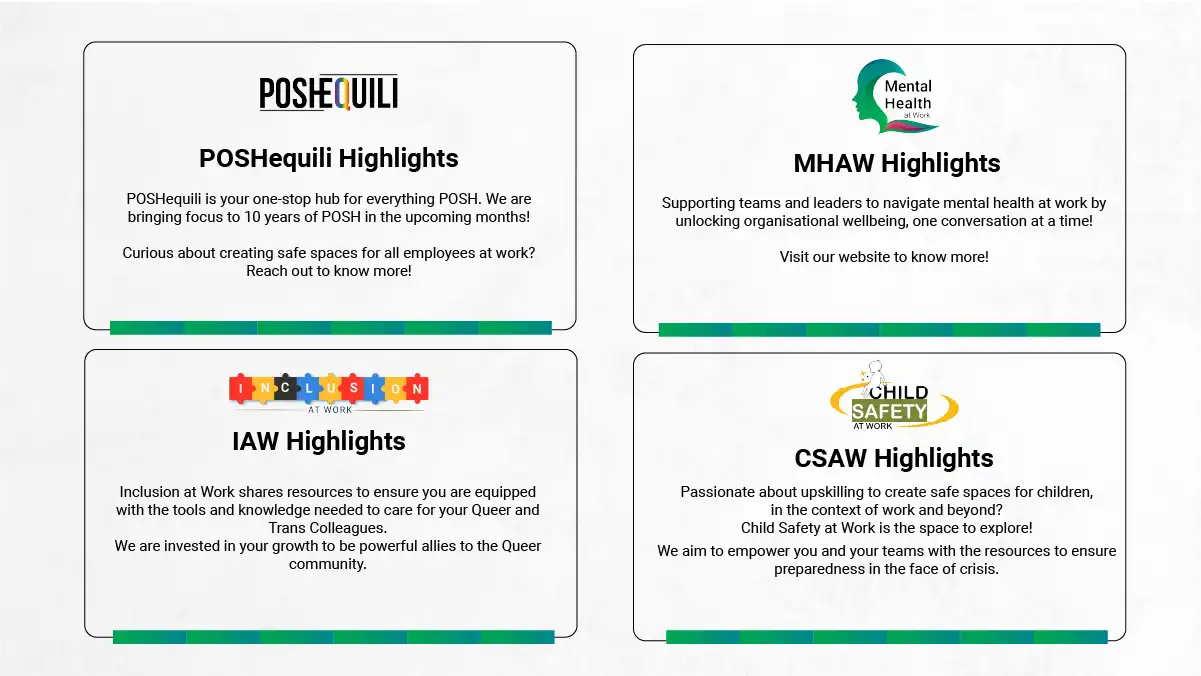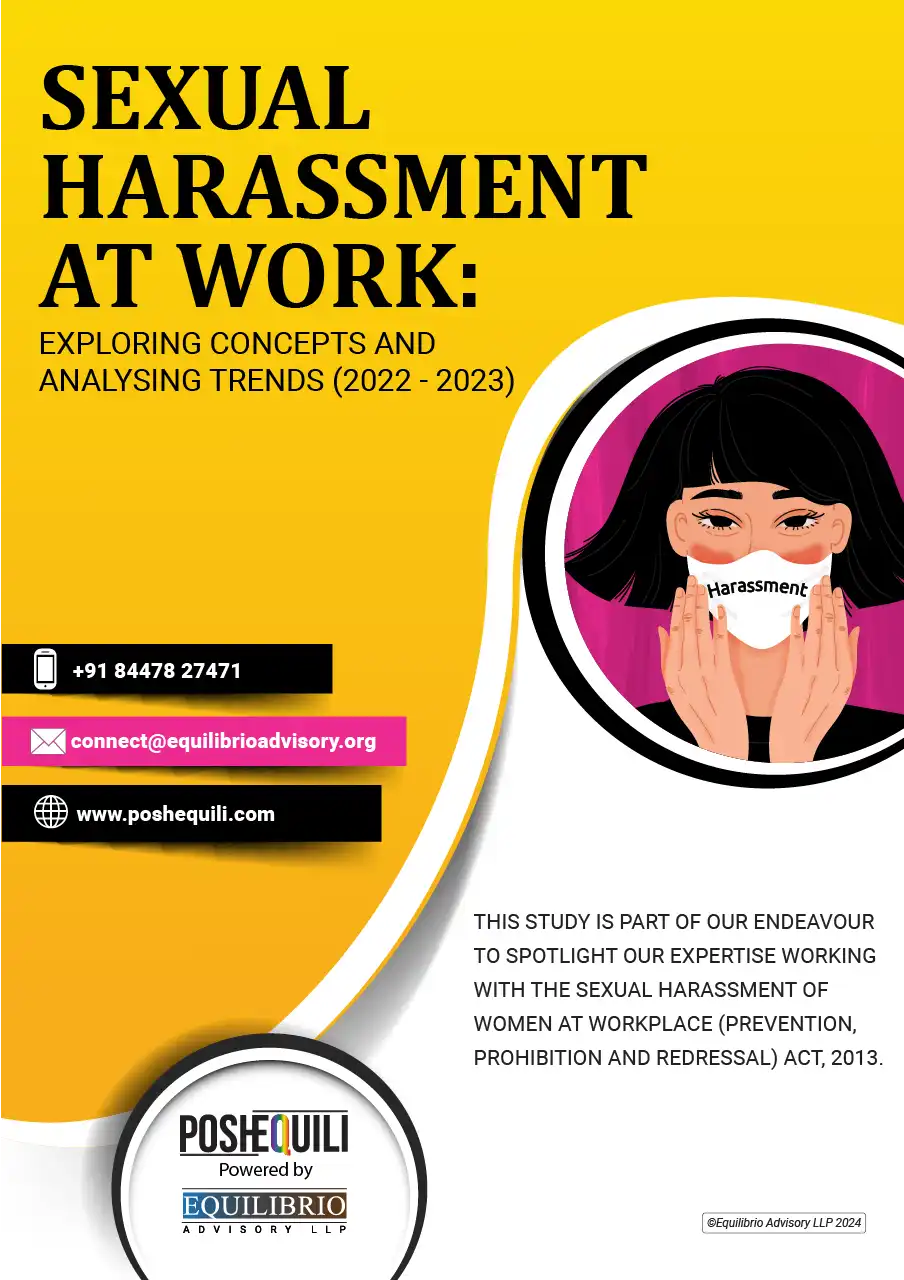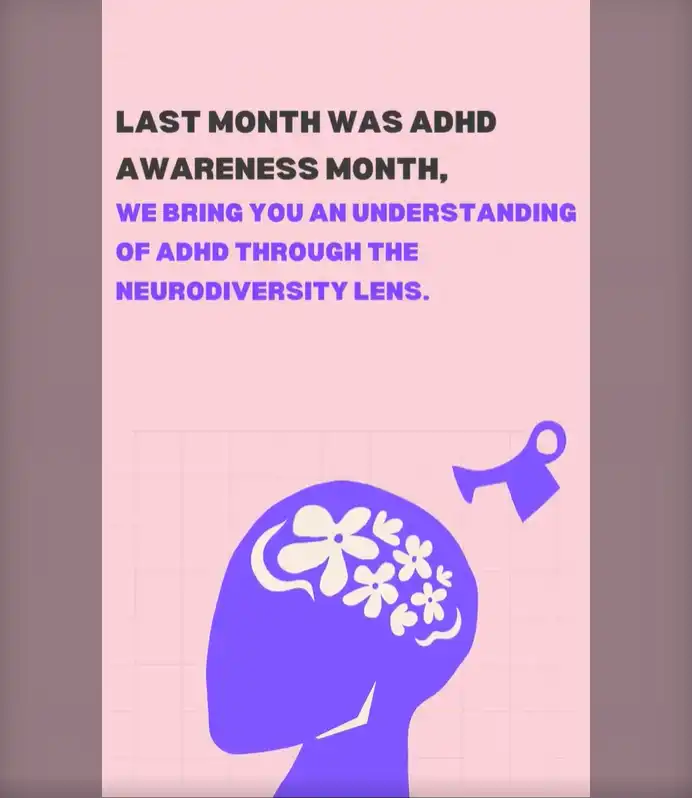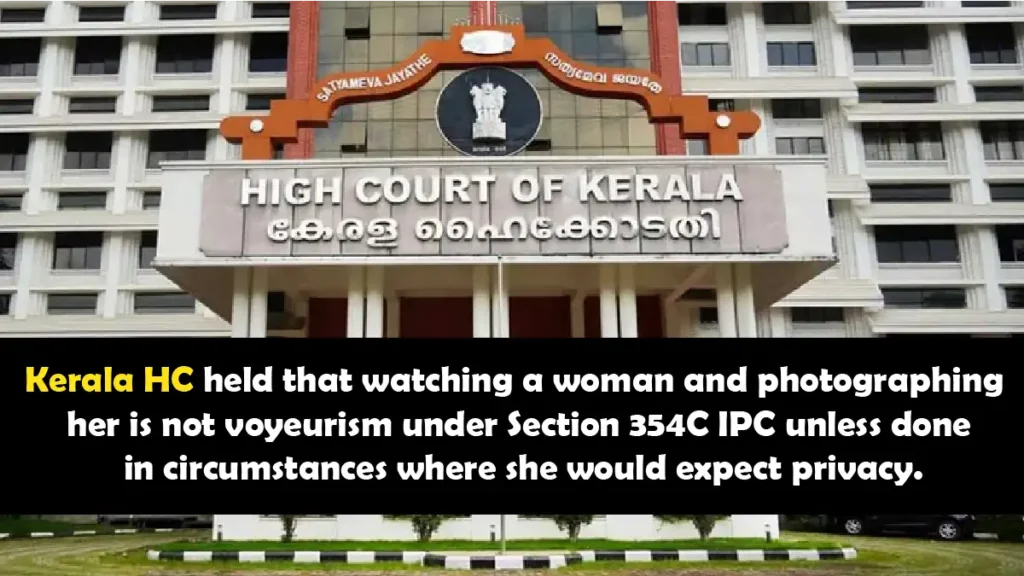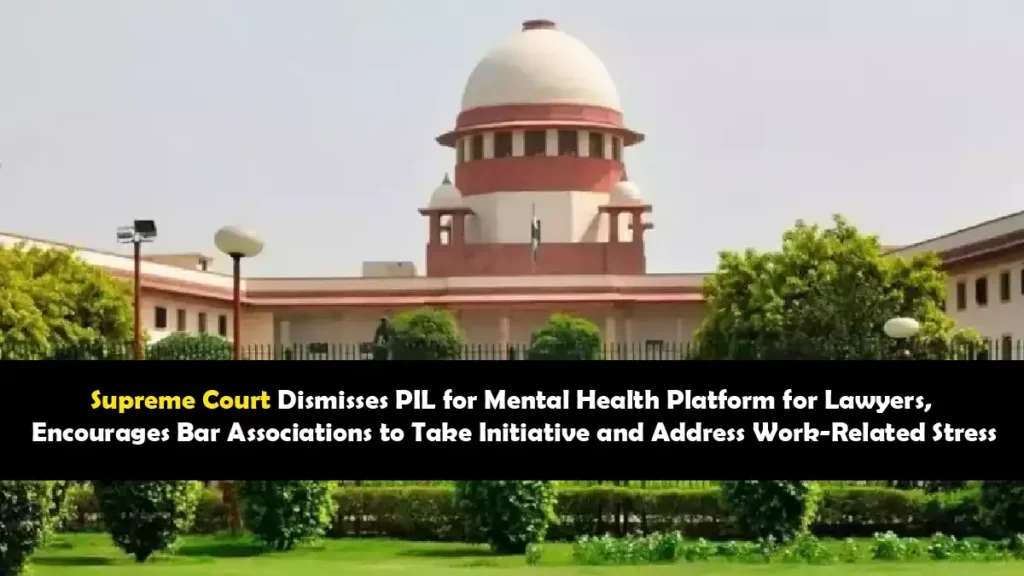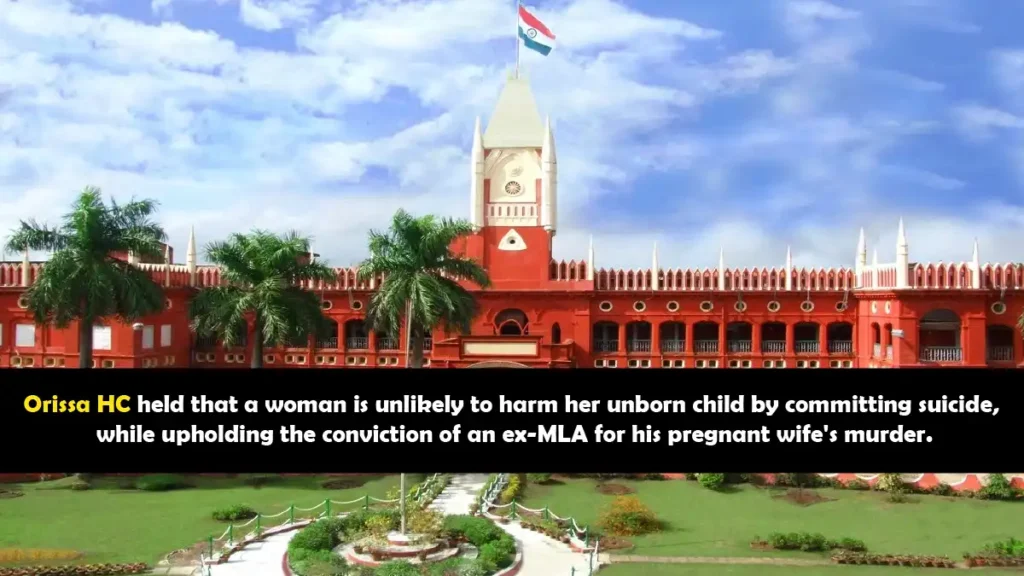The Equilibrio Gazette
A brief bulletin for building safe workspaces!
This weekly newsletter is your gateway to staying current on relevant
laws (like POSH, POCSO, Transgender Persons Act, etc.) and the
psychosocial intersections that impact the workplace.
8th November 2024 / Issue No. 55
Upcoming Events
Mark your calendars! In this section, we highlight an upcoming event you won't want to miss.
If you’re intrigued or have questions about how to conduct inquiries or training on POSH a decade after its implementation, you’re not alone. With evolving ground realities, it’s crucial that training programs are updated to reflect these changes. Our “Train the Trainer” workshop equips participants with the latest tools and insights to conduct effective POSH awareness sessions and inquiries. Join us to stay ahead.
In the Spotlight!
Explore ways to build your knowledge and capacity with our team of in-house experts!
Equilibrio LLP is excited to announce the release of our highly anticipated research on the Prevention of Sexual Harassment at the Workplace. After nearly a year of gathering insights from our experiences as External Members, Trainers, and Consultants, we’ve compiled a comprehensive study that addresses key trends from 2022-2023. This report explores emerging industry practices, complaint handling, redressal options, and more. Download the full POSH Survey Report on our website now.
Stay Current!
~ Spotlighting Landmark Judgments since passing of the Law!
I - LEGAL UPDATES
II - Exploring Intersections
Engage with us!
Here's your weekly food for thought through a Fun Fact or Quiz.

Have a burning question about POSH? Maybe Mental Health at Work, Child safety or DEI&B strategies? Drop us an email with your query and we would love to answer it, in all seriousness.
Curious Cat: What are the global efforts to address childhood violence, and what statistics highlight the severity of the issue?
Answer: Over 100 governments have committed to ending childhood violence, with pledges to ban corporal punishment affecting 3 out of 5 children. WHO reports that 1 billion children globally face violence, with less than 10% receiving help. Preventative measures, including parenting support and school interventions, can reduce childhood violence by 20-50%, improving children’s health and safety.
Here’s all the tools you need to build safe and equitable workspaces!
Drop us a Hey, to get started!



